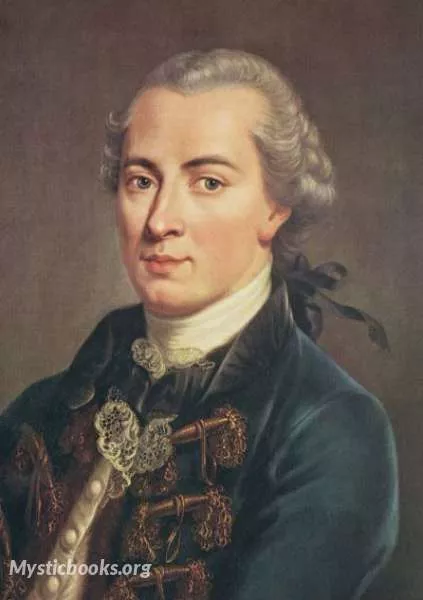
Timeline
Title
Country/Nationality
Immanuel Kant
Immanuel Kant was a German philosopher and one of the central Enlightenment thinkers. Kant's comprehensive and systematic works in epistemology, metaphysics, ethics, and aesthetics have made him one of the most influential figures in modern Western philosophy.
In his doctrine of transcendental idealism, Kant argued that space and time are mere "forms of intuition" which structure all experience, and therefore that while "things-in-themselves" exist and contribute to experience, they are nonetheless distinct from the objects of experience. From this it follows that the objects of experience are mere "appearances", and that the nature of things as they are in themselves is consequently unknowable to us. In an attempt to counter the skepticism he found in the writings of philosopher David Hume, he wrote the Critique of Pure Reason (1781/1787), one of his most well-known works. In it, he developed his theory of experience to answer the question of whether synthetic a priori knowledge is possible, which would in turn make it possible to determine the limits of metaphysical inquiry. Kant drew a parallel to the Copernican revolution in his proposal that the objects of the senses must conform to our spatial and temporal forms of intuition, and that we can consequently have a priori cognition of the objects of the senses.
Kant believed that reason is also the source of morality, and that aesthetics arise from a faculty of disinterested judgment. Kant's views continue to have a major influence on contemporary philosophy, especially the fields of epistemology, ethics, political theory, and post-modern aesthetics. He attempted to explain the relationship between reason and human experience and to move beyond what he believed to be the failures of traditional philosophy and metaphysics. He wanted to put an end to what he saw as an era of futile and speculative theories of human experience, while resisting the skepticism of thinkers such as Hume. He regarded himself as showing the way past the impasse between rationalists and empiricists, and is widely held to have synthesized both traditions in his thought.
Kant was an exponent of the idea that perpetual peace could be secured through universal democracy and international cooperation, and that perhaps this could be the culminating stage of world history. The nature of Kant's religious views continues to be the subject of scholarly dispute, with viewpoints ranging from the impression that he shifted from an early defense of an ontological argument for the existence of God to a principled agnosticism, to more critical treatments epitomized by Schopenhauer, who criticized the imperative form of Kantian ethics as "theological morals" and the "Mosaic Decalogue in disguise", and Nietzsche, who claimed that Kant had "theologian blood" and was merely a sophisticated apologist for traditional Christian faith. Beyond his religious views, Kant has also been criticized for the racism presented in some of his lesser-known papers, such as "On the Use of Teleological Principles in Philosophy" and "On the Different Races of Man". Although he was a proponent of scientific racism for much of his career, Kant's views on race changed significantly in the last decade of his life, and he ultimately rejected racial hierarchies and European colonialism in Perpetual Peace: A Philosophical Sketch (1795), though still considering Europeans as "civilized" to the exception of others. The most serious problems in the consideration of Kant's philosophical legacy came in the late nineteenth century with the advent of modern logic. Logician such as Gottlob Frege, Kurt Gödel, Willard Van Orman Quine and most recently Saul Kripke, came rejected the entire premises of Kant's logic as grounded in metaphysics. William and Martha Kneale have also noted that it was Kant "with his transcendentalism who begun the curious mixture of metaphysics and epistemology which was presented as logic by Hegel and the other philosophers of the nineteenth century" Eventually, also the fundamental pillar of Kant's transcendental idealism, i.e that space and time are pure but subjective a priori conditions of human perception, collapsed with the advent of modern quantum physics and was refuted as "irrational". Albert Einstein once explicitly said that "if one does not want to assert that relativity theory goes against reason, one cannot retain the a priori concepts and norms of Kant’s system".
Kant published other important works on ethics, religion, law, aesthetics, astronomy, and history during his lifetime. These include the Universal Natural History (1755), the Critique of Practical Reason (1788), the Critique of Judgment (1790), Religion within the Bounds of Bare Reason (1793), and the Metaphysics of Morals (1797).
Kant showed a great aptitude for study at an early age. He first attended the Collegium Fridericianum from which he graduated at the end of the summer of 1740. In 1740, aged 16, he enrolled at the University of Königsberg, where he spent his whole career. He studied the philosophy of Gottfried Leibniz and Christian Wolff under Martin Knutzen (Associate Professor of Logic and Metaphysics from 1734 until his death in 1751), a rationalist who was also familiar with developments in British philosophy and science and introduced Kant to the new mathematical physics of Isaac Newton. Knutzen dissuaded Kant from the theory of pre-established harmony, which he regarded as "the pillow for the lazy mind".
Kant is best known for his work in the philosophy of ethics and metaphysics, but he made significant contributions to other disciplines. In 1754, while contemplating on a prize question by the Berlin Academy about the problem of Earth's rotation, he argued that the Moon's gravity would slow down Earth's spin and he also put forth the argument that gravity would eventually cause the Moon's tidal locking to coincide with the Earth's rotation.
Kant's health, long poor, worsened and he died at Königsberg on 12 February 1804, uttering "Es ist gut (It is good)" before expiring. His unfinished final work was published as Opus Postumum. Kant always cut a curious figure in his lifetime for his modest, rigorously scheduled habits, which have been referred to as clocklike. However, Heinrich Heine noted the magnitude of "his destructive, world-crushing thoughts" and considered him a sort of philosophical "executioner", comparing him to Robespierre with the observation that both men "represented in the highest the type of provincial bourgeois. Nature had destined them to weigh coffee and sugar, but Fate determined that they should weigh other things and placed on the scales of the one a king, on the scales of the other a god.
Books by Immanuel Kant
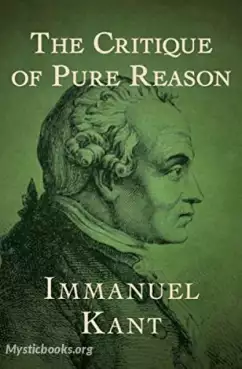
The Critique of Pure Reason
The Critique of Pure Reason, first published in 1781 with a second edition in 1787, has been called the most influential and important philosophical text of the modern age. Kant saw the Critique of Pure Reason as an attempt to bridge the gap between...
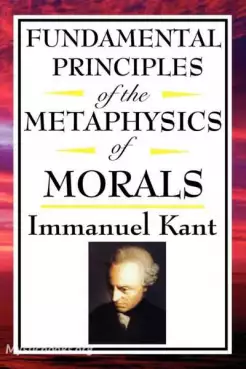
The Fundamental Principles of the Metaphysic of Morals
Groundwork of the Metaphysics of Morals is the first of Immanuel Kant's mature works on moral philosophy and remains one of the most influential in the field. Kant conceives his investigation as a work of foundational ethics—one that clears the groun...
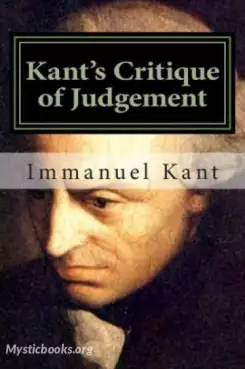
On the Popular Judgment
This tripartite essay – published variously as “On the Popular Judgment” (J. Richardson trans.), “On the Old Saw” (E.B. Ashton trans.), or “On the Common Saying” (both M.J. Gregor and H.B. Nisbet) – Kant takes up the issue of the relation of theory t...
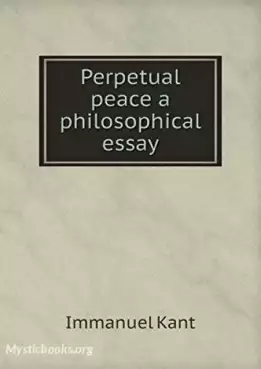
Perpetual Peace
Perpetual peace refers to a state of affairs where peace is permanently established over a certain area. The idea of perpetual peace was first suggested in the 18th century, when Charles-Irénée Castel de Saint-Pierre published his essay "Project for...
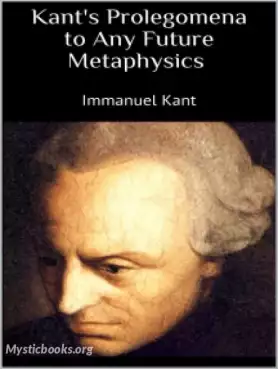
Prolegomena to Any Future Metaphysics
Prolegomena to Any Future Metaphysics That Will Be Able to Present Itself as a Science is a book by the German philosopher Immanuel Kant, published in 1783, two years after the first edition of his Critique of Pure Reason. One of Kant's shorter work...
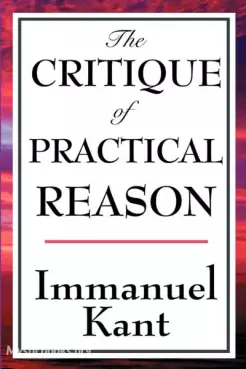
The Critique of Practical Reason
The Critique of Practical Reason is the second of Immanuel Kant's three critiques, published in 1788. It follows on from Kant's first critique, the Critique of Pure Reason and deals with his moral philosophy. While Kant had already published one sign...
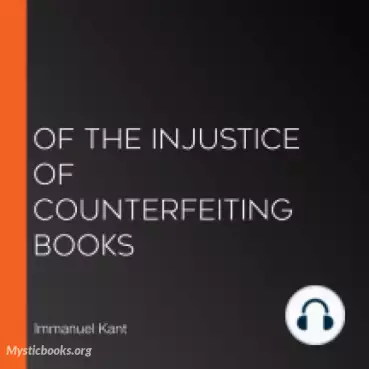
Of the Injustice of Counterfeiting Books
This essay of Kant’s on copyright argues that the unlicensed copying of books cannot possibly be permissible, due to the fact that it assumes a consent on the part of the author which it is logically impossible for the author to give. The argument is...
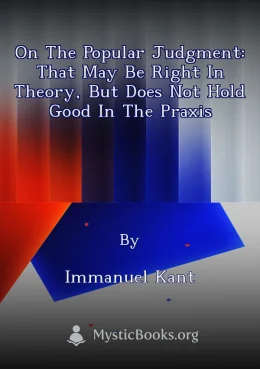
On the Popular Judgment: That may be Right in Theory, but does not Hold Good in the Praxis
This tripartite essay – published variously as “On the Popular Judgment” (J. Richardson trans.), “On the Old Saw” (E.B. Ashton trans.), or “On the Common Saying” (both M.J. Gregor and H.B. Nisbet) – Kant takes up the issue of the relation of theory t...
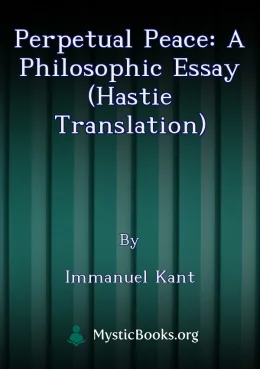
Perpetual Peace: A Philosophic Essay (Hastie Translation)
This essay, written in 1795, puts forth a plan for a lasting peace between nations and peoples. Kant puts forth necessary means to any peace, and argues that nations can be brought into federation with one another without loss of sovereignty. In one...
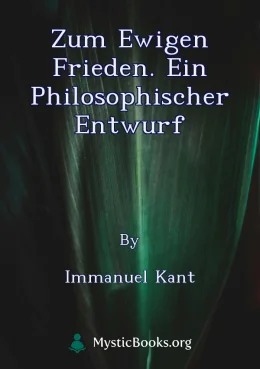
Zum ewigen Frieden. Ein philosophischer Entwurf
Immanuel Kant's "Zum ewigen Frieden" (Perpetual Peace) delves into the complex relationship between morality and international affairs. Kant argues that true peace cannot be achieved through mere chance or circumstance; instead, it requires consciou...
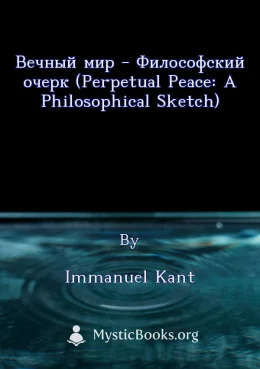
Вечный мир - Философский очерк (Perpetual Peace: A Philosophical Sketch)
Immanuel Kant's *Perpetual Peace: A Philosophical Sketch* is a seminal work in political philosophy, outlining his vision for a world free from war. Kant argues that perpetual peace is not simply an ideal but a possibility, achievable through a comb...
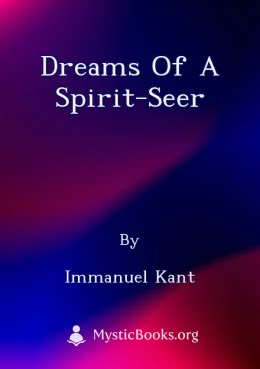
Dreams of a Spirit-Seer
An analysis of the writings of Emanuel Swedenborg, a contemporary of Immanuel Kant, a spiritualist religious philosopher whose ideas continue to have followers today.